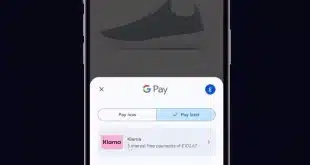U.S. Sen. Richard Durbin and a Vermont Congressman want the Federal Reserve to look into what they say are efforts by debit card issuers “aided by the dominant card networks” to prevent PIN-debit networks from getting a bigger share of booming card-not-present payment volume.
“The Federal Reserve should consider appropriate enforcement action and policy responses to correct any such anticompetitive incentives and regulatory violations,” says a July 24 letter to Federal Reserve Board Chairman Jerome Powell signed by Durbin, D-Ill., and U.S. Rep. Peter Welch, a Democrat who has monitored payment card acceptance issues for at least a dozen years.
Durbin sponsored the so-called Durbin Amendment to 2010’s sweeping Dodd-Frank Act, a measure that regulated the interchange big debit card issuers could receive. To preserve network competition in a market dominated by Visa Inc. and Mastercard Inc., the amendment also required issuers to make at least two unaffiliated debit networks available to merchants for transaction routing. The Fed’s Regulation II, which took effect in 2011, implements the amendment’s provisions.
The letter says “intervention may become necessary again” because of “what appears to be the anticompetitive practice of major debit issuers refusing to enable PINless debit functionality on their cards.”

Some PIN-debit networks, which typically have lower interchange rates than Visa and Mastercard, have developed PINless options in recent years to attract transaction volume, particularly in e-commerce payments when entering a PIN is an extra chore for consumers and a technical hurdle for payments providers. But issuers have an economic incentive to route transactions to networks with higher interchange rates, and the letter says if they don’t provide bank identification numbers for PINless debit, the merchant may not have more than one routing option.
Citing estimates from research and consulting firm CMSPi, the letter says U.S. merchants could save at least $2 billion a year in fees if PINless debit functionality “were made fully available” by having more transactions routed over the PIN-debit networks instead of the Visa and Mastercard networks.
“Because the volume of online ‘card-not-present’ transactions has increased dramatically during the Covid-19 pandemic, the need to address obstacles to PINless debit competition has grown more urgent,” the letter says.
A Fed spokesperson declined to comment on the letter. A Mastercard spokesperson says the company is reviewing the letter; a Visa spokesperson could not be reached Tuesday morning.
The letter raises some of the same issues the Federal Trade Commission began investigating earlier this year. An FTC spokesperson declined to comment on the status of that probe, in which the agency has asked for documents from Visa and Mastercard.
“I believe there is merit to the letter,” Anand Goel, chief executive of Optimized Payments, an Atlanta-based company that helps clients reduce their payment-processing costs, says in email to Digital Transactions News.
But he adds: “I also believe the smaller PIN-debit networks have been slow to implement PINless capabilities. Visa and Mastercard are happy with the status quo, and neither has added [e-commerce] or PINless capabilities to their Interlink and Maestro [debit] networks, respectively, because they know those debit transactions will be routed through their ‘credit’ rails. So the inaction by Visa and Mastercard of not implementing PINless has allowed them to reap larger profits.”
Goel says a good solution “would be for the Fed to force all issuers to support PINless capabilities. This would foster a competitive marketplace in all channels as the Durbin Amendment had intended.”
In a statement, NACS, the Alexandria, Va.-based trade association of convenience stores, said “the law says that there should be a competitive market choice of payment network on every debit transaction. Unfortunately, Visa, Mastercard, and their largest banks have consistently tried to undercut competition. We appreciate Senator Durbin and Congressman Welch’s tireless work to ensure the U.S. payments system becomes a more competitive market system and operates consistent with the law.”





